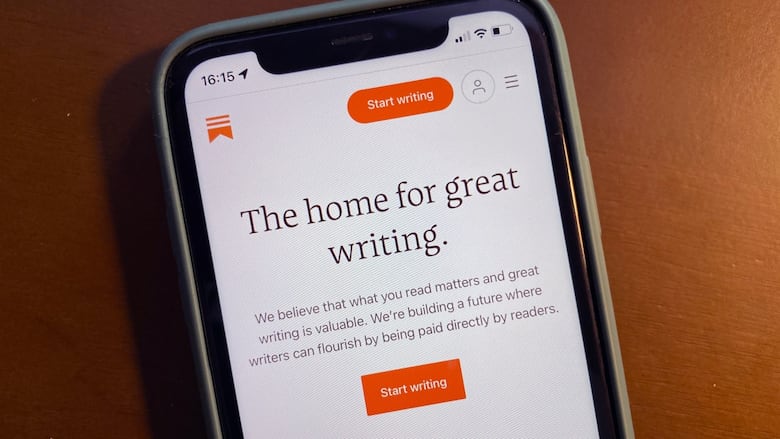Is Substack the future of media?
Writers Vinson Cunningham and Kate Lindsay discuss the rise of the newsletter platform

Substack has grown exponentially since its launch in 2017. Last week, the newsletter platform company raised $100 million and is now valued at over a billion dollars.
The platform has become a hotspot for journalists to disseminate their own writing and reporting. Substack offers writers control over their audience and their output in a time when legacy media continues to lay off its reporters and sometimes dictates their political coverage.
Today on Commotion, host Elamin Abdelmahmoud speaks with Substackers Vinson Cunningham and Kate Lindsay about if this platform is the future of media.
We've included some highlights below, edited for length and clarity. For the full discussion, listen and follow Commotion with Elamin Abdelmahmoud on your favourite podcast player.
Elamin: The metaphor here [with Substack] is: what if you could pay for one specific columnist instead of paying for the entirety of the newspaper? How would that change your relationship to the stuff that you consume?
Kate, what's your read on why Substack has been so successful?
Kate: I think it's a little bit capitalizing on what you were talking about, which has always existed, that people have these parasocial one-on-one relationships with the people who make the media they consume. But I would say that's really exploded over the past few years by the creator economy. And even though I know some journalists bristle at the idea that they're anything like an influencer—
Elamin: Many journalists just slammed their fists, but yes, absolutely.
Kate: But they benefit from that same relationship that influencers have been cultivating. Any one of us can write about the Astronomer CEO drama [at the] Coldplay [concert] — and every single one of us are — but you want to get that from the specific person whose voice you like.
I think it's [also] this very simple concept of email. And they [the Substack founders] were just the ones to do it in the best way in terms of both building a platform that makes it easy for anyone to make a newsletter and it looks really polished, but also this ecosystem they built around it that has helped with discovery.
Elamin: This is what the Substack co-founders said when they were announcing this new round of funding: "We aim to prove that a media app can be fun and rewarding without melting your brain. An escape from the doomscroll, and a place to take back your mind." Vinson, when you hear that, that positioning of saying, "Hey, we can solve a problem that you are definitely feeling," how does that land for you?
Vinson: If the email ethos of Substack says that you can spend your time looking at things that you have desired to see, and therefore you are not on various toxic forms of social media, well, great. Anything that takes us away from that is a good thing.
On the other hand, I'd never really realized that Substack has become kind of a social media site. There's a feed, it looks like Twitter, there's an app. And if you read that, after a while, you'll get depressed like you do on everything else. There's a lot of hustle culture on it, there's a lot of "I can teach you how to make your newsletter." And for me, it's like, no, no no no, I'm not interested in any of that. I'm interested in reaching people who are looking for things to focus their attention on. But the coin of the realm these days — it's been said many times in many ways — is attention. And if you can have a wholesome relationship with your own mind, which various concerns in our society want to colonize. AI says: "You don't have to use your mind." Certain forms of TV said: "Turn it off and just look." If I can be a part of helping grab people's attention back for themselves — and that's what I'm interested in in everything I do, whether it's for a company like Condé Nast or for myself via a company like Substack.
You can listen to the full discussion from today's show on CBC Listen or on our podcast, Commotion with Elamin Abdelmahmoud, available wherever you get your podcasts.
Panel produced by Jessica Low.

